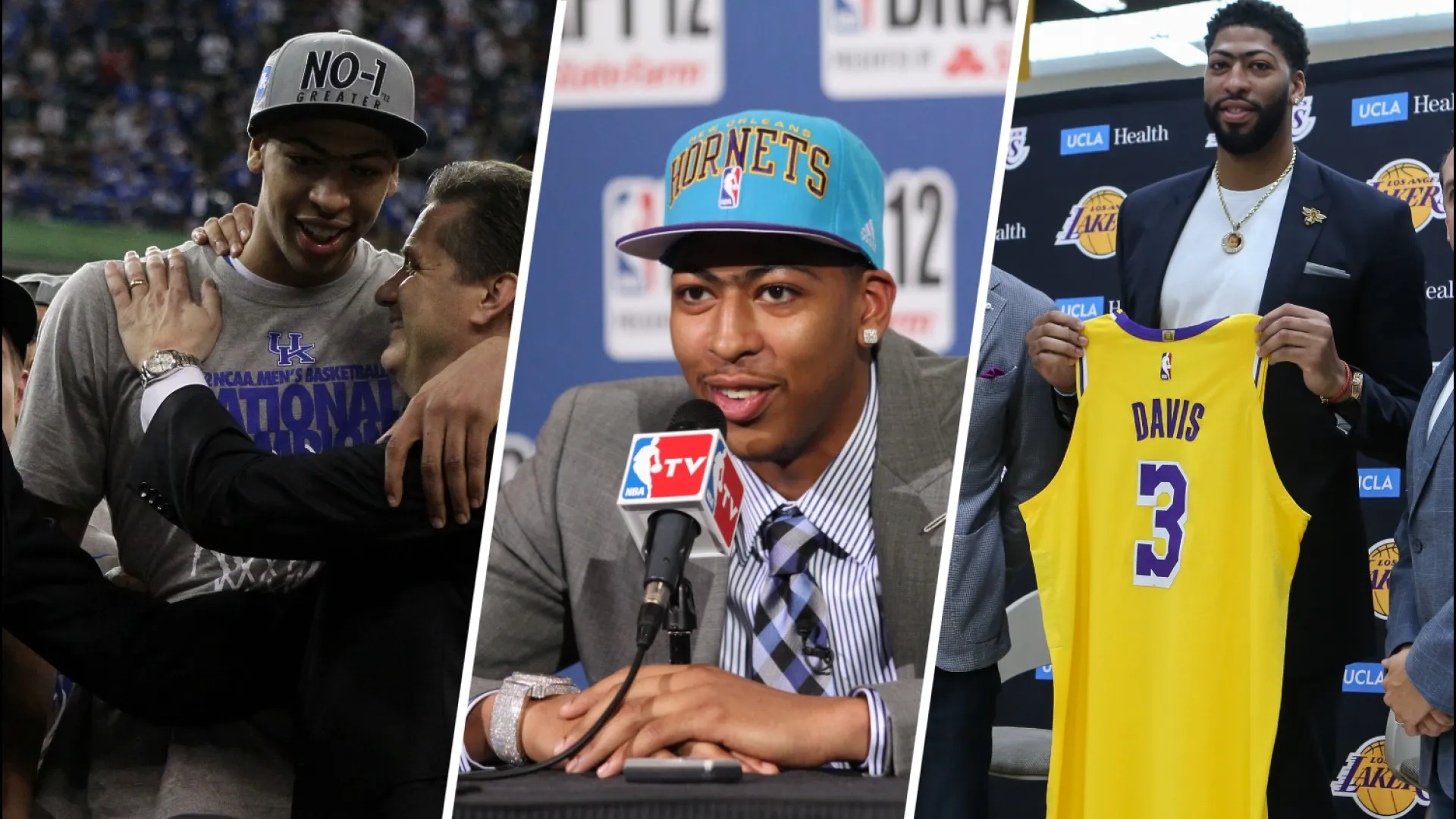
By Jeff Nuich
CSN Chicago Senior Director of CommunicationsCSNChicago.com Contributor
January 6, 2010
Stay in the game with the latest updates on your beloved Chicago sports teams! Sign up here for our All Access Daily newsletter.
Want to know more about your favorite Chicago media celebrities? CSNChicago.com has your fix as we put the citys most popular personalities on the spot with everyones favorite weekly local celeb feature entitled 5 Questions with...
Every Wednesday exclusively on CSNChicago.com, its our turn to grill the local media and other local VIPs with five random sports and non-sports related questions that will definitely be of interest to old and new fans alike.
This weekone of the most respected international sports writers in the country whose insight and detailed coverage of the Olympic Games is second to nonehell soon be making his trek to Vancouver to cover the Winter Games for the Chicago Tribune and the Tribune family of newspapershere are 5 Questions withPHIL HERSH!
BIO: Philip Hersh grew up in Boston but has lived in Evanston since 1977. He has worked at the Chicago Tribune since 1984 and has focused on international sports and the Olympics since 1987. For the past 10 years, the German sports publication, Sport Intern, has named Hersh among the 100 most influential people in world sports. He was graduated from Yale University with a B.A. in French and a specialization in early 19th Century French literature. Prior to joining the Tribune (prior seems like the early 19th Century), Hersh worked for the Gloucester, Mass., Daily Times, the Baltimore Evening Sun, the Chicago Daily News and the Chicago Sun-Times. His wife, Ann Roberts, is a professor of the History of Art at Lake Forest College. They have one child.
1) CSNChicago.com: Phil, with the 2010 Winter Olympic Games coming up in a few short weeks in Vancouver, what events are you most looking forward to covering and do you see the United States making a big overall statement in final medal count when its all said and done?
Hersh: My primary responsibility will be figure skating, where the men's event shapes up as the most interesting, especially for Chicago readers, since Evan Lysacek of Naperville is the reigning world champion. There is a good possibility there will be 4 men with world titles in the event now that 2006 Olympic champion Evgeni Plushenko has returned to competition after a three-year absence and two-time world champion Stephane Lambiel is back after a one-year absence. Based on strong showings at last year's world championships and World Cup this year, the U.S. team overall could easily better its performance from the 2006 Olympics. Alpine skier Lindsey Vonn is being billed as a winter Michael Phelps, but the vagaries of skiing (changing conditions, risk of in jury) are such that Vonn would do well to win one gold medal, even if she is favored in downhill and Super-G. (There are no five foot waves hitting one swimmer, but 30-mile-per-hour wind gusts could hit just one skier).
2) CSNChicago.com: Chicago-born speedskater Shani Davis will no doubt receive a boat load of media coverage at the Winter Games and millions of fans will be glued to the set to watch this brilliant athlete make his mark in Vancouver. Will anything short of at least two Davis gold medals be a disappointment for the U.S. and, a quick follow-up question, do you think Davis was out of line for calling comedian Stephen Colbert a jerk for the Comedy Central hosts tongue-in-cheek criticism of Canadians, even though Colbert helped raise over 250K for the U.S. Speedskating team?
Hersh: If this event were in Salt Lake City or Calgary, where the ice is fastest because of both altitude and superior ice-making, you could bet the farm on Davis winning the 1,000 and 1,500. But the sea-level rink in Vancouver is a bit of an equalizer, making results less predictable. Look for Shani to win at least one gold and one other individual medal; and this time, there should be no controversy about his decision not to skate team pursuit, as U.S. Speedskating officials have made it public well in advance rather than leaving him to twist in the wind, as was the case at the 2006 Winter Games.
As far as the Colbert issue, nothing Shani does surprises me. He generally goes his own way. And, as I noted in a Blog last month, I think the "jerk'' remark had more to do with a Colbert skit during the 2006 Olympics than anything recent.
3) CSNChicago.com: What are your thoughts on allowing NBA and NHL professional athletes to participate in the Olympics?
Hersh: The addition of pro basketball players to the Olympics has done more to improve the game worldwide than anything else in the sport's history. The 1992 Dream Team not only gave the world a chance to watch many of the game's greatest players in history pound the opposition, but gave players around the globe a level of excellence to aspire to. The result: U.S. pros did not win the Athens Olympics and have earned no better than bronze in the past three world championships. As for the NHL: ask most NHL players, and they will be gung-ho to play in the Olympics. The only thing that disappoints me about the upcoming Olympic tournament is that, for the first time since the NHL has taken part, it will take place on an NHL-sized rink rather than the longer, wider Olympic-sized rink. The beauty of the recent tournaments was seeing the speed and passing skills pros could display when clutch-and-grab tactics weren't as easy to execute. Hopefully, the emphasis in the NHL on having a more flowing, freewheeling game will carry over to the Olympics.
4) CSNChicago.com: Name the top three Olympic moments youve personally covered that you will fondly remember years from now?
Hersh: Number One is what I did during the Opening Ceremony of the 1984 Winter Games in Sarajevo -- particularly because of the horror that would befall that city a few years later.
In 1984 -- before cell phones, before Internet -- Sarajevo was a very exotic, remote place. It will be remembered as the last Olympics held in a place there was a true sense of uniqueness in a world becoming more and more homogenized.
In my mind's eye, I try to see the Sarajevo of Feb. 8, 1984, when a light snow was falling in the ancient marketplace downtown, a place where cultures and centuries blended into a harmonious flow. The opening ceremonies were underway across town, and I chose to spend those hours wandering the snowy stillness of the souk.
The snowflakes flickered in the streetlights, and TV sets flickered through the windows of every shop in the market. Time blurred, centuries running together in what seemed a harmonious flow. Sarajevo, then known only as the unfortunate locale where an Archduke's assassination touched off World War I, was suddenly the cynosure of the world's eyes for much happier reasons.
The transcendent image was of a city at peace with itself and the world that had come to visit for the next 15 days. Each of us would leave with a story or several about the kindness of a new Sarajevan friend-the person going in an opposite direction who turned to pick up someone waiting for a bus that was very late, the woman in the pizza parlor who joked that the picture of ice cream on her shop window was "communist propaganda," the stranger who hugged you during the awards ceremony for alpine skier Jure Franko, Yugoslavia's lone Olympic medalist in 1984.
Number Two occurred during the track competition at the Barcelona Olympics. This is how I described it in my Tribune story:
In the Olympic preoccupation with winners and losers, in the mania for counting medals, it is easy to forget what really constitutes triumph.
Derek Redmond of Great Britain showed what it was Monday night, in an exhibition that was both excruciating and exhilarating to watch.
He limped and hobbled around the final half of the Olympic Stadium track. Redmond's face was contorted with pain and tears, but he was determined to finish a semifinal heat of the 400 meters even though his chances for a medal had disappeared with the pop in his right hamstring that left him sprawled on the track.
The sight of his son's distress was too much for Jim Redmond, who had been sitting near the top row of a stadium packed with 65,000 people. He rushed down flights and flights of stairs and blew past security people who challenged his lack of the appropriate credential to be on the track.
"I wasn't interested in what they were saying," Jim Redmond said. "I don't speak any Spanish, and you don't need a credential in emergencies."
Jim Redmond, 49, is a big man who was wearing a T-shirt that read, "Have you hugged your foot today?" He caught up to his son at the top of the final curve, some 120 meters from the finish. He put one arm around Derek's waist, another around his left wrist.
"At first I didn't realize it was him," Derek said. "Then he shouted my name, and I recognized his voice. It must have been hard for him."
They moved in tandem for a few meters until Derek Redmond stopped and threw his arms around his father's shoulders and sobbed. Then they started again, doing a three-legged wobble toward the finish.
Jim Redmond let his son go for the last few steps so he could cross the finish alone. Then he threw his arms around Derek again.
Number Three was watching Muhammad Ali light the cauldron at the 1996 Olympics in Atlanta:
He appeared out of the night, out of the past he shared with both the event and the region. When the light caught his dark face, caught it full, the reflection was brighter than the flame Janet Evans handed to him. It was a reflection of the possibilities the Olympics promise and rarely deliver, the possibilities for men and women to be judged by who they are and not how they look.
Muhammad Ali, the final torch bearer at the Opening Ceremony, up there on what seemed a mountaintop, the celestial mountaintop of equality that Atlanta native Dr. Martin Luther King Jr. had preached about climbing. The boxer who had won Olympic gold in 1960, then threw his medal in the Ohio River after being refused service in an all-white restaurant. The man who represented the racial and social polarization of the 1960s and early 1970s when he took a Muslim name and said he didn't have anything against "them Viet Cong."
Ali, the world's best-known sports figure of the last 50 years. Ali, showing 3 billion telespectators worldwide that his nation, his native South, can rise above itself in the heat of a steamy Georgia summer night. Ali, 54, his face smooth and young and his arm wobbling from a disease of age, summing up the Olympic Century. It was the greatest.
5) CSNChicago.com: With your years of traveling the globe covering the Olympics and numerous other international sporting events for the Tribune, how many total frequent flyer miles do you think youve racked up so far?
Hersh: I've flown 1.5 million miles on United since joining Mileage Plus in 1983, plus another 300,000 or so on other airlines. Baseball writers probably more miles, but they haven't been to the places I have. Check out my most memorable trips in this Blog entry: http:newsblogs.chicagotribune.comsports_globetrotting200912my-favorite-p...
BONUS QUESTIONCSNChicago.com: Anything you want to promote Phil? Tell us, CSNChicago.com readers want to hear about it
Hersh: Follow me on my Blog, Globetrotting: http:newsblogs.chicagotribune.comsports_globetrotting and on Twitter: twitter.comolyphil
Hersh LINKS:
Chicago TribunePhil Hershs Globetrotting blog
Chicago TribunePhil Hersh International Sports columns
Phil Hersh on Facebook
Phil Hersh on Twitter


